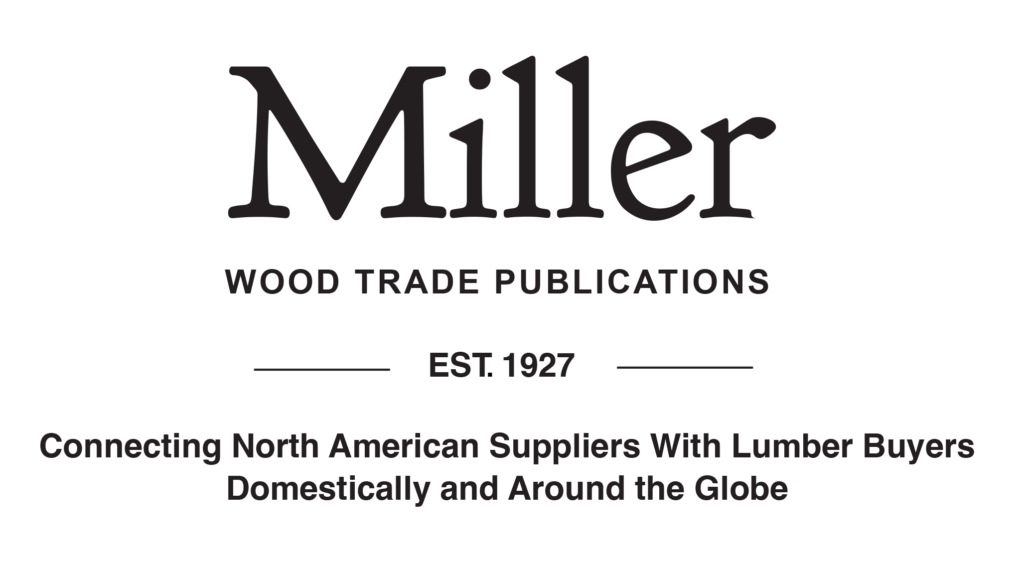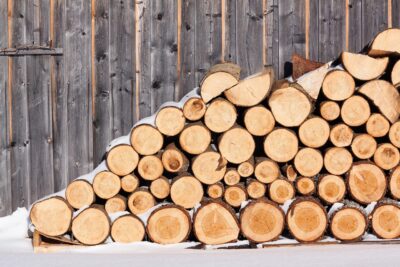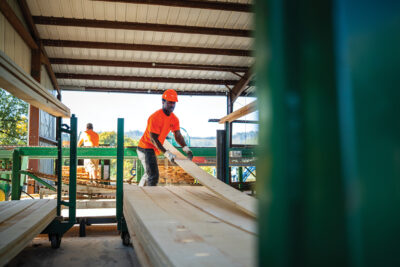Northeast Business Trends

Northeast U.S. Faces Tariffs And Slower Economy In Lumber Industry
By Cadance Johnson
Associate Editor
Sources in the Northeast, at the time of writing, agree the start of the year was slow for sales and reference both tariffs and economic standing as the primary reasons.
In New York, a wholesale lumber representative said the market is “a little slower” and that activity in the area has not been “as brisk” in the past weeks. “It’s better than six months ago. I think with the heat, and we’ve had lots of rain, things have gotten better since then,” he said.
The company is wholesale only and sells Eastern White Pine, Spruce and some Douglas Fir, all milled in pattern stock. In Spruce they offer 1×3, 5/4, ½ inch x 6 beveled siding, 1×2, 2×2 and some 2×6 tongue and groove. In Eastern White Pine they offer everything 1×2 through 1×12 with the pattern stock being the best seller.
“No issue with transportation for us, we have our own trucks, so we cover most of New York, into Vermont, Massachusetts and a little bit of Connecticut. As of right now we have not been affected by the tariffs,” he said.
A lumber salesman in Maine mirrored these sentiments with “it’s pretty slow.” Between wholesale and retail the market is “holding steady” but overall, the expected “uptick in sales” is not there for this time of year.
“It’s worse than what we expected six months ago. I would say because of the tariffs and interest rates. Maine is at a deficit for housing; it’s just we ship a lot of wood throughout the country so it’s going to impact us,” he said.
His company sells Eastern White Pine in Select and Better, finish grade, premium grade, standard and industrial all in 4/4 with 8-inch standard selling best and a decline in upper grade demand.
Eastern White Pine and Spruce in standard grade are in demand
“It’s all wholesale from here. They are buying our product to ship it to different yards. So, I think everybody is being cautious. Nobody is calling, last week was a very slow week in sales for this time of year. I think people are just holding onto their inventories. We had a wet spring, so a lot of the weekend warriors weren’t out there doing their projects. I think that caused some back up in some of the warehouses,” he said.
While he reported no issues with transportation, tariffs have caused issues. “Early on, because we have five Canadian wholesalers, we had some cancelation of orders. We did get a couple customers back from the Canadian side, because we can send lumber into Canada and, as long as it’s being reprocessed and sent back, it won’t be exposed to tariffs,” he said.
“So, tariffs, I mean in every industry, a lot of people are holding back just waiting to see what happens. We saw an uptick in April. We’re in the season right now, however, it’s kind of like the market you’d see in early spring with phones not ringing off the hook,” he said.
A New Hampshire lumber company spokesman said the market in his area is doing badly between the “economic conditions” and “trade issues,” with it being worse than six months prior.
They sell 4/4 Eastern White Pine, in all NELMA grades, to retail lumber yards who then sell to contractors and homeowners. Standard grade is selling with the most demand with premium a close second.
When asked what his customers are telling him regarding the market he said, “they say it’s the same on their end for the most part. I think we will be stuck where we’re at for a while.
“We have a stable work force, fully staffed. I’d say employment has been easier to get than it had been when the market was better, but I’d say it kind of goes with the economy. I would say generally, if people are nervous about the economy they’re less likely to leave their jobs,” he said.
When asked about transportation he said, “We have our own fleet and we contract out a little bit. Seems like there are more trucks available than there were at the beginning of the year. We handle most of it with our own fleet, but when we do contract out it seems like there’s more competition with trucking companies to get the business.”
He followed up by saying, “We do a little bit of exporting; we aren’t selling to China. We export all lower grades to Pakistan, traditionally to Canada but that’s gone away with the tariffs. Pakistan is just buying our low-grade Pine and they’re finger jointing it to remanufacture it.”










